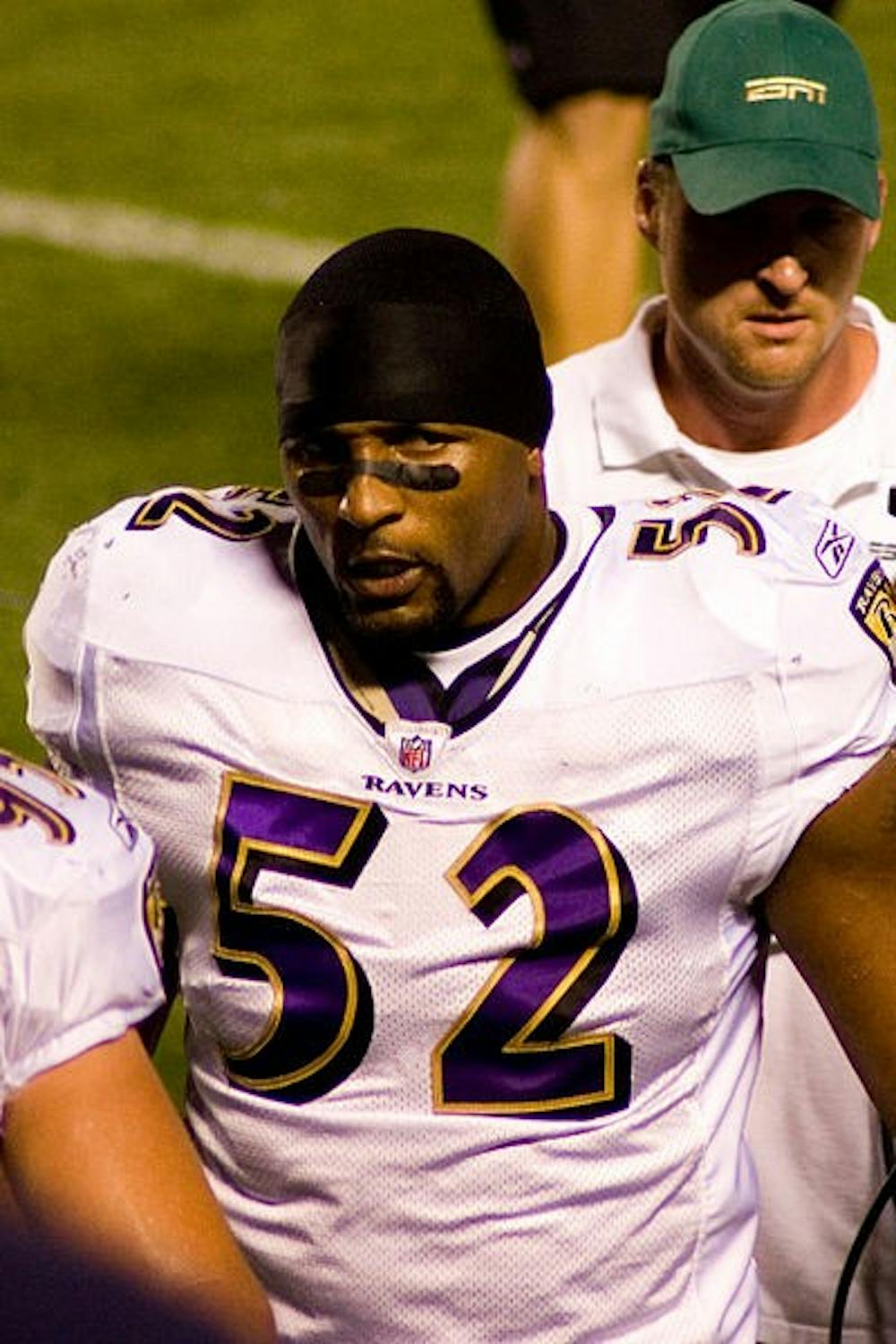
Adam Orla-Bukowski
In nearly every job in the United States, there are harsh punishments for breaking the law, especially when it comes to violence. If you work as an accountant, or a store clerk, or a doctor or a teacher, you would likely get fired if you did something as awful as physically abuse a loved one, or shoot a gun in a public place or commit murder. However, if you are a professional athlete, you would likely keep your job.
The violent crimes of many athletes are often downplayed in the face of their athletic accomplishments and fame. We remember athletes largely for their on-field strengths, but we forget their atrocities. When we don’t acknowledge the violent and awful pasts of these athletes, we are passively saying that athletic talent and popularity outweighs crimes like domestic violence, rape and even murder.
Now, every so often, an athlete will make the news over allegations of drug possession or maybe public intoxication. These crimes, at least in my eyes, are minor crimes as they would likely only impact the athlete. Often times the NBA and the NFL will punish these crimes severely, sometimes even with lifetime bans for repeat offenders like former Milwaukee Bucks shooting guard O.J. Mayo. These crimes are more commonplace and do not cause much stir in the press as they typically are open and shut.
The crimes that stand out to me as unforgivable offenses are the ones involving violence, especially domestic violence and sexual abuse. Off the top of my head, I can name about a dozen athletes in the past five to 10 years who have been accused of violent acts like domestic violence, rape or even murder. Names like Ray Rice, Floyd Mayweather, Reuben Foster, Greg Hardy, Hope Solo, Ray Lewis, Jason Kidd, Dennis Rodman and many more have occupied the headlines of the sports section of the newspaper — or maybe the scrolling banner during a SportsCenter episode.
For the most part, each of these athletes are famous for their prowess and skills as competitors and for being role models that young athletes look up to. Often these names are brought up in sports debates, with some of them even being referred to as greats or legends of their sports.
To gauge public opinion, I walked around campus for a few hours and stopped about 20 people to get an understanding of what they thought of these athletes. I asked these people to say the first words that came to their mind when each athlete was brought up.
For the more famous athletes, the responses were largely related to the sport they played or the public personality they have. Floyd Mayweather got responses of “money, boxer, undefeated.” Ray Lewis got responses of “Raven, linebacker, all-time great, leader.” Dennis Rodman got responses of “Bulls, Jordan, tough.”
The lesser-known athletes like Greg Hardy, Ray Rice, Hope Solo and Reuben Foster got responses like “abusive, violent, bad person.” The correlation that I noticed is that the more famous or successful an athlete was or is, the less of a chance their history of violence was mentioned. The less famous or successful an athlete was or is, the higher the chance that their history of violence was brought up.
The trend of these responses seems to be that fame and career success can cloud the memory of these athletes’ histories of violence. All of these athletes were charged with domestic violence, with the exception of Ray Lewis (he was charged with murder). Many of these athletes pled guilty or were convicted, with only Ray Rice’s case being dropped at the request of the plaintiff.
The most insane aspect of this is that nearly all of these athletes were able to continue their careers, raking in millions of dollars from their salaries and endorsements. By allowing these players to continue to play, coach or make money from advertising contracts, the owners of the teams and the CEOs of major companies are passively condoning acts of violence.
When we think of these athletes, it’s all right to think of their careers on the court or field, but we should not forget the crimes they have committed against their friends, their loved ones and strangers. We should not consider these athletes heroes, for they are not. In our minds and conversations, these violent people should not be considered athletes who have committed acts of violence: They should be considered criminals who happen to play a sport.





